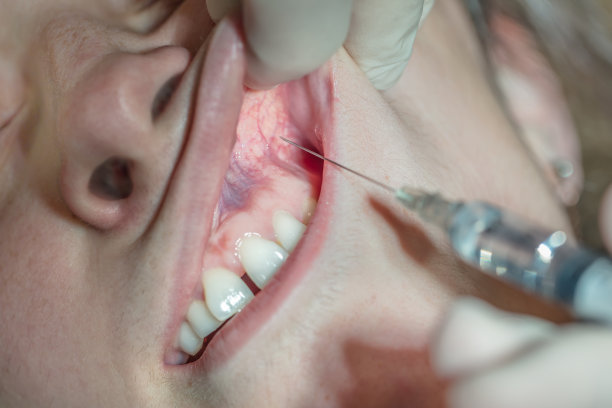Summary: Dental fillings are a common dental procedure designed to restore the function of a decayed or damaged tooth. However, optimal oral health care requires a comprehensive understanding of what to consider before and after receiving a filling. This article outlines essential guidelines that focus on preparation steps, post-treatment care, potential complications, and the importance of follow-up visits. By recognizing these aspects, patients can ensure the best outcomes for their oral health, enhancing both healing and longevity of dental work.
1. Important Steps to Take Before Treatment

Before receiving a dental filling, understanding your oral health status is crucial. Schedule a thorough dental exam to allow your dentist to assess the extent of your tooth decay. This initial evaluation can prevent unforeseen complications and help determine the best type of filling material for your specific needs.
Additionally, discuss all medications and health conditions with your dentist. Some medications might affect the procedure or healing process. It is important to provide an accurate health history, as this will help your dentist make the most informed decisions regarding pain management and patient care.
Finally, mentally preparing for the procedure can reduce anxiety. Knowing what to expect during the filling process helps patients feel more comfortable. Consider discussing any concerns with your dental team beforehand, ensuring that you are fully informed.
2. Essential Care After Getting a Filling
After receiving a dental filling, proper aftercare is vital to ensure healing and longevity of the restoration. Avoid eating hard or sticky foods for at least 24 hours post-treatment. This precaution helps avoid dislodging the filling while it sets and also gives the affected area a chance to recover.
Daily oral hygiene routines should be maintained but with extra care. Brush gently around the filled area to prevent irritation and ensure cleanliness. Using a fluoride toothpaste can be beneficial, as fluoride not only strengthens the surrounding teeth but can also aid the newly filled tooth.
Pain and sensitivity may occur after the procedure. If pain persists beyond a few days or worsens, contact your dentist immediately. They may need to check the fillings fit or assess for any underlying issues. Being vigilant about changes in your oral health post-treatment is essential for long-term success.
3. Potential Complications to Be Aware Of
Even with the best care, complications can sometimes arise after receiving a dental filling. One common issue is sensitivity, which can occur due to temperature changes or pressure. This sensitivity usually subsides within a few weeks; however, patients should not ignore severe or prolonged discomfort.
Another potential complication is the misalignment of the filling. An improper bite can lead to issues such as jaw pain or teeth grinding. Always feedback to your dentist if you feel uneven pressure or discomfort when biting down on the filled tooth.
Lastly, secondary decay can occur if proper hygiene is not maintained. It’s essential to focus not only on the filled tooth but also on surrounding teeth to prevent further decay. Regular dental visits and cleanings will help minimize this risk and maintain overall oral health.
4. Importance of Follow-Up Visits
Follow-up visits are a critical part of the dental filling process. Scheduling a visit helps ensure that the filling is intact and functioning properly. During these appointments, your dentist will check for signs of decay around the filling and assess how well the tooth is healing.
These visits also provide an opportunity to discuss any concerns that have arisen since the procedure. If you’ve experienced discomfort, sensitivity, or changes in chewing ability, do not hesitate to bring these issues to your dentist’s attention. Open communication can lead to timely interventions and prevent worsening conditions.
Furthermore, follow-up visits contribute to a comprehensive maintenance plan. Your dentist can recommend additional treatments or changes to your oral hygiene routine as necessary, ensuring ongoing optimal care and enhancing your dental health.
Summary:
In conclusion, understanding essential guidelines before and after receiving a dental filling is crucial for maintaining optimal oral health. Taking the right preventive steps can significantly enhance the procedures effectiveness and longevity of the filling. Additionally, staying vigilant about aftercare and attending follow-up visits will help address any complications early on, ensuring the best possible outcome for your dental restoration.
This article is compiled by Vickong Dental and the content is for reference only.
Vickong Dental
Vickong Dental is a large medical group established in Hong Kong in 2008 by professors from well-known medical universities in Guangdong and Hong Kong, as well as medical doctors from key national '985' universities (including Master's supervisors and senior professors). The chain of branches brings together expert dentists with PhDs and Master's degrees from Hong Kong and Mainland China, committed to providing high-quality dental treatment.
"Vickong Dental Practices the University Motto of 'Healing and Serving Society,' with a Stable Operation for Sixteen Years. It Has Been honored with Hong Kong Enterprise Leaders's Choice,' and is a Global Trusted Implant Center for the Nobel Implant System. Recommended by Hong Kong Metro Broadcast and Guangdong Television, it Serves Customers from Over Thirty Countries and Regions, Gaining the Trust and Favor of Citizens from the Guangdong-Hong Kong-Macau Greater Bay Area and Surrounding Cities.

Thousands of customers' unanimous praise
The most recognized and highly recommended dental service by customers in the Guangdong-Hong Kong-Macau Greater Bay Area
We Ensure You Receive Detailed Care and Attention Here
Hong Kong standards, Shenzhen prices, Your Trusted English-speaking dentists

Vickong Dental Medical-Grade Instrument Disinfection Process
Vickong Dental Medical-Grade Instrument Disinfection Process

Vickong Dental Chain: A Warm and Comfortable Environment for Treatment






Appointment Hours

Q&A
Why choose Vickong Dental?
Vickong Dental practices the university motto 「Medicine to Benefit Society」, with each branch bringing together highly qualified dentists with doctoral and master’s degrees from Hong Kong and the Mainland, and has maintained seventeen years of steady operation。Recipient of 「2024 Hong Kong Enterprise Leaders Brand」, 「2025 Hong Kong Enterprise Leaders Brand」, a Nobel Biocare Global Trusted Implant Center, and a brand recommended by Metro Radio Hong Kong and Guangdong TV。
To date, we have served customers from more than thirty countries and regions,earning exceptionally high word-of-mouth recognition and trusted recommendations from residents across the Guangdong-Hong Kong-Macao Greater Bay Area and surrounding cities
We have eight major branches in Zhuhai、Shenzhen,and a consultation and service assurance center in Hong Kong,so you can book a free consultation at any time for any questions,which is very reassuring.
If I do not accept the quotation after the CT scan, will I be charged??
No! As long as the actual treatment has not started, you will not be charged any fees.
Will there be any additional charges during the treatment process?
No, there won’t be any additional charges. Before treatment begins, we will clearly explain the treatment plan and its corresponding fees. Only after the patient agrees and signs the consent form will we proceed with the dental service.
Can I pay in Hong Kong dollars?
Yes. Vickong Dental accepts payment in Hong Kong dollars. The amount will be converted based on the exchange rate of the day, and the applicable rate will be clearly communicated to you in advance.
Can I reschedule my appointment at any time?
Yes. Please contact us via **WeChat** or **WhatsApp** as early as possible, providing your original appointment time and details, along with your preferred new date and time slot for rescheduling.













